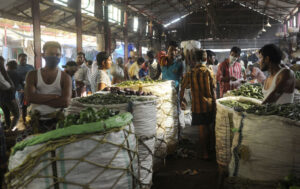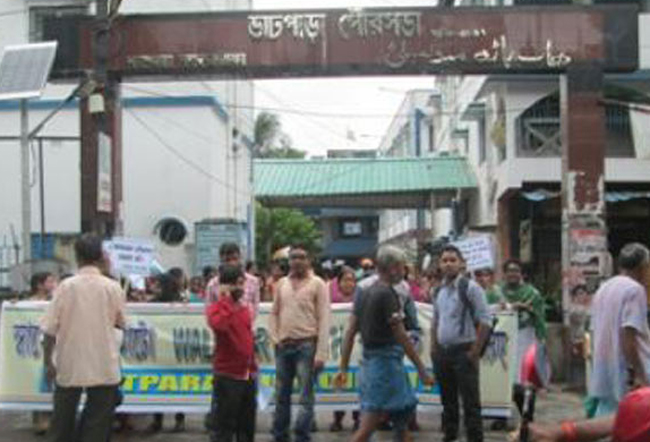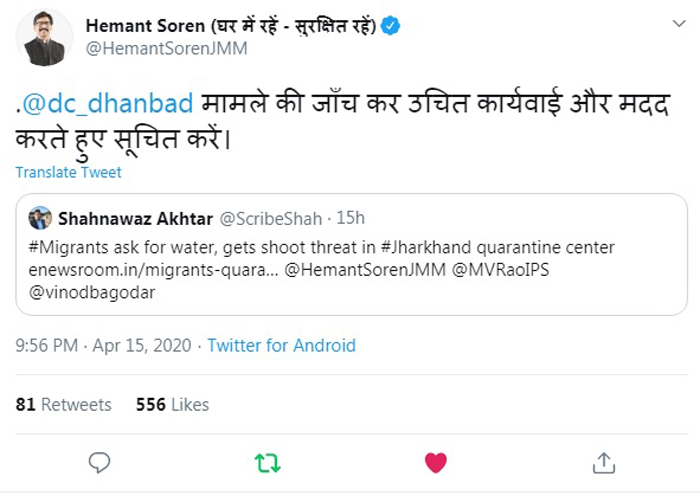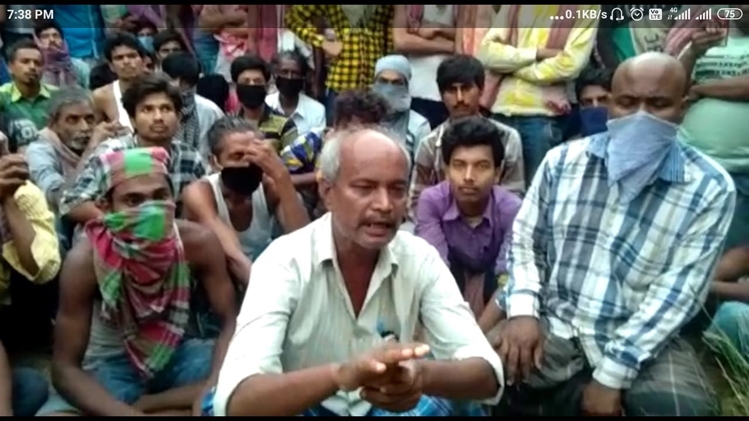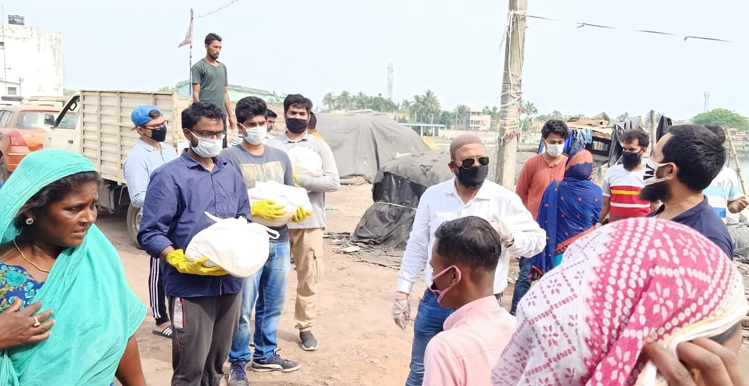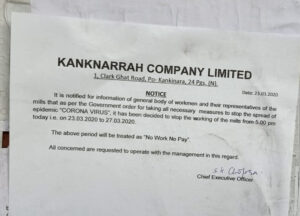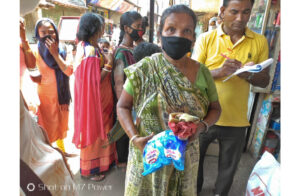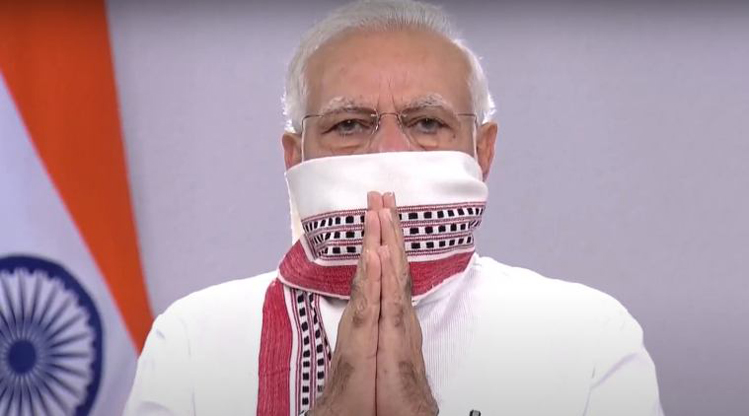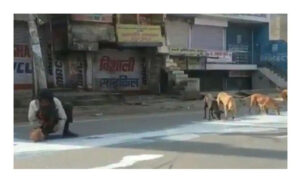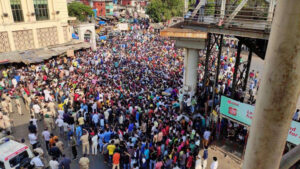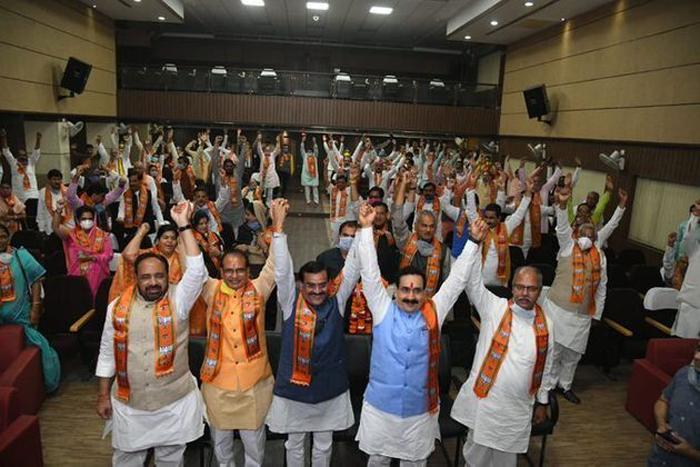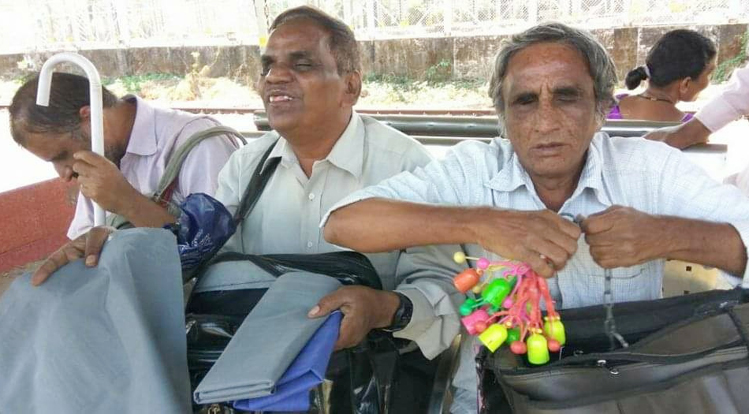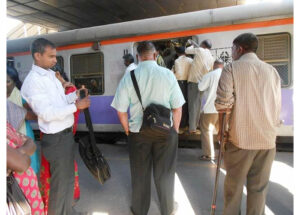The first casualty of war is truth, goes the saying. However, the current war against corona pandemic was supposed to be an exception since it involves us and our mortal enemy altogether. It is true as experts in social psychology have pointed out that people are prone to misinformation or rumors and exaggerations during a war or pandemic. Xenophobia; fears and dislikes of foreigners and homegrown ethno-religious minorities considered alien to the majority in a land snowball most profusely during such trying times. Many rumors are self-propelling, misleading but not mischievous. But the history is also replete with the examples of professional breeders of deliberate disinformation who spread falsehood and fanned mass hysteria against the ‘enemy within’ and outside the realms, mostly at the service of the rulers of the day.
Down the ages, this nexus has been exploiting the vulnerable mass psyche at the time of great perils and promoting prejudices against racial, communal or national minorities and inculcate herd and siege mentalities among the majority to its own benefits. The racial-religious or social-cultural differences between ‘us’ and ‘them’, perceived or real, have been used to demonize the alien outside or the ‘Other’ within. Their Stereotyping kills all individuality and other varieties in the targeted community by making it a faceless and heartless lump of abominable aggregates.
Further, the spin-masters have gained certain legitimacy by giving deliberate twists to some action or non-actions of the ‘enemy/traitors’ which has already become a byword for latter’s enmity to ‘us’. This pinch of plausibility makes the fake stories believable to the minds already bigoted. Although, minority rabble-rousers too have used this trick in many countries including Indian subcontinent, majoritarian elites have benefited most.
The fake news factories
Today our Hindutva hate-factories are working 24X7 to mutate the latest strains of hate-virus against Indian Muslims by blaming them for the corona contagion in the country. This is the new phase of old Sangh Parivar narrative of a dogged anti-India ‘conspiracy by our enemies’, read Pakistan and Indian Muslims as its fifth column. Many Indians had hoped that the pandemic would be an occasion for national unity after the recent spell of divisive politics over religion-based citizenship law and longer anti-Muslim aggression of Modi 0.2 since last August. But the leopard cannot hide its spots. The politics of communal polarization cannot ensure its hegemony without constantly demonizing its pet scapegoats for its utter failures in economy. The prime minister has said nothing against slanders against the main minority despite international concerns.
The Godi media have taken advantage of the Tomfoolery of Tablighi Jaamat leadership which went ahead with its congregation at Nijamuddin Markaz or Centre in Delhi when the pandemic was spreading fast globally. Though, it was held before the Indian lockdown from 25 March, the continuation of TJ annual religious preaching program in the states added to virus proliferation. Situation became more suitable for the rumor mills when some potentially infected participants who needed testing and quarantine had gone into hiding. Apparently, they were afraid of legal punishment and social ostracism from already hostile BJP government and police in UP and other saffronized states.

Subsequently, exaggerated, unrelated, doctored and simply fake videos and audios have been manufactured and circulated to harp on the ‘conspiracy’ not only through the Whatsapp University but also on mainstream, ‘national’ TV channels, mainly Hindi and English. Aaj Tak, Zee News, India TV, News Nation, Sudarshan News, ABP News as well as Republic TV and TV 18 network have gained most notoriety among them. These TV channels have given widespread currency to the canards. Their screaming headlines and ‘breaking news’, claiming evidences for ‘Corona Jihad/ Holocaust’ or ‘Jaamati SaJish,/ Harkate (Jaamat conspiracy/misdeeds)’ have aimed at vilifying not only TJ but the entire community. The anchors’ vituperative, hollering and hectoring against Muslim panelists as well as those absent have fanned a mass frenzy against Muslims mainly in Hindi heartland states. Large-circulated newspapers like Jagaran, Amar Ujala, Patrika as well as the news agency, ANI have joined the bandwagon.
Harping on lies
They have circulated the old and unrelated videos showing Sufi collective Zikr (of Allah’s names in every breath) and licking of food stains in plates by Bohra sect members (to show extreme austerity and gratitude to the ultimate food-giver) as the ‘proof’ of deliberate collective sneezing and spitting by the TJ congregation’. The online fake-news busters and truth-seekers promptly exposed the lies by retrieving the original videos from the deep web and putting the fakes side by side using latest digital technologies.
But the forgers are undaunted. They have come out with a new video of an Islamic preacher blaming him for instigating Muslims to spit in public to spread corona virus.
The fake-busters have again traced out the original making it clear that it was about a ‘symbolic’ Muslim ritual to ward off enticements from ‘Satanic voices’ during prayers. It is another matter that fundamentalists in all religions are at odds with science. Notwithstanding that debate, alternative media activists have pointed to the fact that the cleric had uploaded his disclaimer to the effect that spitting at public places during the pandemic would be a crime.
Nevertheless, other venomous videos and WhatsApp/Twitter/Instagram or Facebook messages are in circulation to buttress the same conspiracy theory. These include videos of a middle-aged Muslim fruit-seller licking or spitting on his wares, a Muslim youth ‘caught red-handed’ injecting spittle and was thrashed mercilessly by the vigilantes to teach him a lesson. Another one has claimed that Muslim men deliberately left currency notes, contaminated with their saliva, on roads to spread the virus. The first instance was found to be a case of psychosomatic problems and second one a thoroughly concocted one. Luckily, the youth survived. In the third case, the man who had accidentally lost his money on the road rushed back to police to claim it. But such hate-campaigns have triggered beating and boycott of Muslim vegetable and fruit-sellers. Now street vendors in some north Indian cities are perching small saffron or crimson flags on their wares to identify them as Hindus. This is New India!
The TJ-specific complaints aired by the Godi channels and other media included the claims that the participants of Nizamuddin Markaz had demanded non-veg food at their quarantine centers, misbehaved with doctors and nurses, roamed naked or even defecated in the open. Later the police and administration in the concerned areas denied those stories and some of them even denounced the ‘yellow journalism’. One TV channel’s shrill charges against certain Markaz –returnees of deliberately spreading the infection in the neighborhood by hiding their illness and even deaths in their families were proved false both by the officials and fake-busters. But the hate-mongers have refused to stop witch-hunting of Muslims in urban and rural Corona-clusters irrespective of the veracity of unwanted actions or inactions by individual members of the minority.
Targeting Muslims for Migrant unrest
The regime and its media toadies could not either suppress or stomach the images of millions of migrant labors marching to their distant homes after being thrown out of jobs and shelters following the prime minister’s sudden declaration of prolonged lockdown.
For the record’s sake, Narendra Modi sought people’s pardon, particularly, that of the poor since he knew that most of these hapless cross-country workforce belong to Hindu lower castes and tribals of Hindi heartland. As usual, the courtiers are more loyal than the king. Messrs Goswami, Sharma, Choudhury and Chourasia and the PM’s lesser acolytes denied the food crisis and hunger deaths among the stranded migrants.

The beginning of the second spell of the lockdown on Indian New year day made the migrants restless. They came out on streets demanding trains to home in Surat to Mumbai, Delhi to Hyderabad. The migrants’ expectations were fueled by media reports including those of some of the Godi channels which had reported about railway ministry’s tinkering with a plan to run some special trains to ferry the marooned. It led to huge turnout at Mumbai’s Bandra station and police caned the hapless to disperse.
The toadies soon smelt a rat and zoomed in a local mosque accusing the community leaders of being the main instigators behind the footfall. The usual suspects were again at the receiving end of the Kangaroo courts at the TV studios. The witch hunt continues to deflect the concerns over the great humanitarian crisis involving the millions and ruins of their lives and livelihoods which will linger for foreseeable future in post-lockdown India and world.
The fake-busters
Online Fake news monitor groups like Alt News, Factly, Boom, Newsclick et al have been busting the utter lies and forgeries of the hate-mongers relentlessly. Even police and administration from UP to Arunachal Pradesh, Delhi to Karnataka have denied many a false reports related to the TJ and attributed to the official sources. But these truth-seeking news activists who enjoy no blessings from the regime and its corporate cronies are apparently overwhelmed by the hugely resourceful and powerful propaganda machinery. So new hateful lies are springing up like the offspring of demon RaktaVija of the Hindu mythology as soon as old ones are being cut down. The Goebblesian principle of making a lie believable through its relentless repetition seems to working on the minds of good numbers of Hindus mainly in the Hindi Heartland, including educated middle class.
Indian Journalism is at great peril
I know some of these propagandists of the current regime who are marauding as journalists in the Lutyen’s Delhi as I had worked there in the late nineties. I came to know soft-spoken Sharma as a venomous RSS diehard during the Kargil war. He lectured me on patriotic journalism at the time of war before firing me for filing reports which did not gel with his brand of nationalism. His personal equation with Modi has made him hugely powerful in Indian television media today.
Goswami, the frothiest rabble-rouser today was a low-lying, benign regional chauvinist in his early avatar before graduating to his role of self-appointed public prosecutor for the nation. His on-screen belligerence, I suspected for a long, was more a TRP-oriented marketing strategy than ideological conviction. Now I think his career ambition has triggered the marriage of convenience between his regionalism and Hindutva nationalism. Choudhurys and Chourasias have been mercenary humbugs at the service of the politically ambitious media-Mughals and power centers of the day.
There are some turncoats who had served dynasts of Congress when the latter were in power. Most of Modi’s media fawns today were never counted among the brightest and most perceptive journalists in Delhi either in print or television. But the regime has ensured the gradual eclipse of the independent journalists, many of them were critical both to the Congress and BJP. They have been eased out from influential TV channels and newspapers by dangling carrot and sticks to the owners. The media barons who were looking for large share of government advertisements as well as other business favors, were also offered Rajya Sabha seats.
Unlike his buddy Trump, our PM still refuses to host any press conference or take questions from critical media even six years after his rise on the Raisina Hills. It gels with his megalomania and paranoia since his Gujarat days and sits well with his Narcissism. Together, these traits are fueling his aggressive personality cult that only tolerates the toadies.
So when he speaks of Tyag and Tapasya of ordinary Indians during the lockdown, it is only a pretext to ask them to be the ‘anushasit sipahi’ or disciplined and dutiful soldiers to the rastra or the nation-state, in other words, dedicated to the cult of the great authoritarian leader. It rings a bell for those who have seen or survived Indira Gandhi’s Emergency and her courtiers’ chants of ‘Indira is India’.
Media crawled before Nehru’s daughter when they were asked to bend– Modi’s mentor Lal Krishna Advani later famously commented. I wonder what the original Hindu Hriday Samrat turned Margdarshak would comment on Godi media today.




